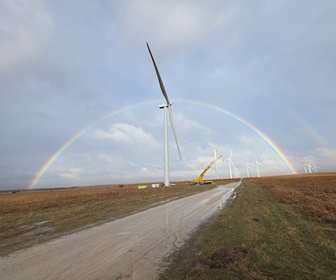Despite record additions to renewable energy capacity in 2024, the world is still falling behind on its climate and efficiency goals, according to a new report from the International Renewable Energy Agency (IRENA), the COP30 Brazilian Presidency, and the Global Renewables Alliance (GRA). Global renewable capacity grew by a record 582 GW last year. However, to meet the COP28 UAE Consensus target of tripling renewables to 11.2 TW by 2030, annual additions will now need to reach 1 122 GW from 2025 onward, requiring growth of 16.6% per year.
Energy efficiency also remains a concern. Global energy intensity improved by just 1% in 2024, well below the 4% annual improvement needed to align with the UAE Consensus and limit warming to 1.5°C. The report urges governments to:
- integrate renewable targets into national climate plans ahead of COP30 in Belém;
- double collective ambition in national pledges to meet global renewables goals; and
- scale investment in renewable energy to at least USD 1.4 trillion per year from 2025–2030, more than double the USD 624 billion invested in 2024.
G20 nations are expected to account for over 80% of global renewable capacity by 2030, with G7 countries expected to raise their share to around 20% within the decade. The report also highlights the need for developed economies to deliver on climate finance, meeting the USD 300 billion annual floor and scaling toward the USD 1.3 trillion aspirational target confirmed at COP29 in Azerbaijan.
Beyond capacity additions, the report stresses the importance of investment in grids, supply chains, and clean-tech manufacturing for solar, wind, batteries, and hydrogen to support the energy transition.









